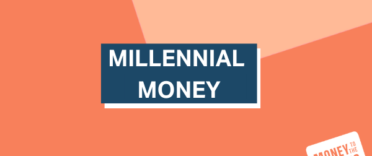 You can consolidate multiple credit card balances onto one balance transfer credit card. This can save you money on interest, simplify your payments and help you clear your debt more quickly. However, it will not be the right choice for everyone and there are alternative options out there. In this article, we explain how a balance transfer works, the potential pitfalls to avoid and what alternative options you could look into.
You can consolidate multiple credit card balances onto one balance transfer credit card. This can save you money on interest, simplify your payments and help you clear your debt more quickly. However, it will not be the right choice for everyone and there are alternative options out there. In this article, we explain how a balance transfer works, the potential pitfalls to avoid and what alternative options you could look into.
What is a debt consolidation credit card?
You can use a credit card to bring debts from other cards onto one balance. This is done through a balance transfer credit card, a type of debt consolidation credit credit card designed to move debt. Having your credit card debts on one balance should make repayments more simple and easy to manage.
You could also benefit from not having to pay any interest, as many balance transfer credit cards come with an initial interest-free period. This period can last for between a few months to a few years, but will depend on your credit history and the offers currently available. By moving your existing debt to an interest-free card, you could potentially save a significant sum in interest payments over the time it takes you to clear the card.
Can you use a debt consolidation credit card?
If you have multiple credit cards, a balance transfer credit card is a great option because it simplifies your payments as well as likely saving you money on interest. However, you will need to pay a balance transfer fee each time you move the debt from an existing credit card over to your new balance transfer credit card. It is important to take this into account when you work out how much you will save by using a balance transfer credit card. Unless you plan to transfer the balances of a huge number of credit cards, you should save money by consolidating your debt onto a balance transfer credit card. However, there are still pitfalls to keep in mind.
For example, once any 0% rate expires on your balance transfer credit card, you could end up paying a higher interest rate than you were on your original credit card. Make sure you are able to budget for clearing the debt before any offers end. Also, take into account the balance transfer charge and any other fees you may need to pay on the new card.
What to do before you consolidate debt with a credit card
In most cases, consolidating debt with a credit card will make the repayment process smoother, the repayments smaller and the repayment period shorter. However, it is still worth taking a few extra steps to maximise the effect of a debt consolidation credit card. Here are some options to think about:
- Check if you can pay off any debt first - A balance transfer, especially to a 0% credit card, is a great way to cut the cost of your debt. However, the best option is always to pay it off. For many people in credit card debt, that is not a realistic option. If you have savings or investments that you can use to pay off your debt - even if it costs money to access the funds - could be the best option.
- Improve your credit score - The best debt consolidation credit cards with long 0% interest-free periods and low balance transfer costs will only be available to people with good credit scores. You may find that a decent option is available without taking any steps to boost your score, but there are some very easy steps you can take to boost your score and open up some extra borrowing options.
- Check balance transfer credit card deals - Many providers will let you run an eligibility check to see what cards you are likely to be successful in applying for. This can tell you what options are realistic for your financial situation and give you an idea as to how long you will have to clear your balance before you need to pay interest and how much it will cost you to move over your existing balances. If you are not eligible for a card with a lower interest rate than you are already paying, you may need to consider another option to manage your debt.
- Plan for the future - Make a budget and work out what you will need to do to clear your total balance before the introductory rate on your new card ends. If you don’t think you will pay off the debt in time, think about what your next steps will be, including whether you could afford the minimum repayments at the standard rate.
Once you are prepared and ready to go, check out our articles ‘Best 0% balance transfer credit card deals’ and ‘How to do a credit card balance transfer in 5 minutes’.
How to find out which credit card is best for you
You can use Money to the Masses partner Creditec* to quickly build a list of the credit cards that match up with your needs. By simply adding in a few basic details, you will get a tailored collection of the best credit cards for you. You can use your Creditec results to check how likely you are to be accepted for a certain card, which cards available to you offer the best rewards or find out what option will leave you with the lowest fees to pay. Creditec is able to check your eligibility without running a full credit check, which means your credit score will not be affected. Click this link to start your comparison*.
Pros and cons of a debt consolidation credit card
Here are the advantages and disadvantages of using a debt consolidation credit card.
Pros of a debt consolidation credit card
- Simplify your debt by moving it to one place
- Potentially pay much less interest overall, including none at all if you can clear the balance before a 0% interest period ends
- Possible to clear your debt much faster without high interest payments
- Help your credit score by making it easier to meet all of your repayments and eventually clear your debt
- More flexibility in comparison to a personal loan
Cons of a debt consolidation credit card
- There will usually be a balance transfer fee of a percentage of the amount of money you move over
- The initial interest rate will last for a limited period of time, sometimes only a few months
- Missing a repayment could mean any 0% interest period is cancelled and you have to pay extra fees
- Once any introductory offer ends, your interest rate will increase sharply, potentially meaning you pay more interest than before you transferred
- You may be charged extra interest if you continue to spend using the card
- A credit card may not be the right option if you are struggling to control your spending, as it could lead to further debt
- Having a low credit score could mean you don’t get the full 0% introductory period
Is a debt consolidation credit card the only way to consolidate debt?
Consolidating debt is the process of paying off all of your existing debts using a new debt, meaning you only owe money to one lender. This means that you can consolidate debt using any type of borrowing. A credit card is the obvious choice to consolidate credit card debt, especially if you can get a 0% interest deal. However, you could use a personal loan to consolidate your debt instead.
You can consolidate debt with a personal loan by using the money you borrow through the new loan to pay off all of your existing debts. You then pay back your personal loan. Like all debt consolidation, this will make the payments more manageable by only needing to make one monthly prepayment instead of several. With a personal loan, you could spread your debt over a longer period to make each repayment more affordable, though you could end up paying more interest overall.
Personal loans can also allow you to access more money than is usually possible with a credit card, sometimes with a better interest rate too. However, the best rates will be reserved for people with excellent credit scores and the monthly payments will likely be fixed, so you would miss out on the flexibility of a credit card. We go into more detail in our article 'Is it better to get a credit card or a personal loan?'.
We also cover some alternative debt consolidation options in our article ‘What is the best way to consolidate my debt?’.
If a link has an * beside it this means that it is an affiliated link. If you go via the link Money to the Masses may receive a small fee which helps keep Money to the Masses free to use. But as you can clearly see this has in no way influenced this independent and balanced review of the product.







